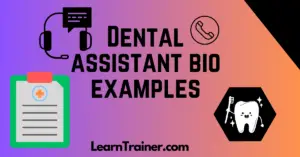Plumbing issues can hit you at the most inconvenient times. Whether it’s a leaking pipe, a clogged drain, or a malfunctioning water heater, plumbing problems often feel like an unexpected burden.
When these problems arise, your first instinct might be to call your insurance company to check if your policy covers the repair costs. But does insurance actually cover plumbing issues? And if it does, to what extent?
This question is something homeowners frequently ask, and for good reason. Plumbing repairs can sometimes cost thousands of dollars, so knowing whether or not you’re covered is essential.
In this post, we will break down the various types of plumbing issues, explain how different insurance policies handle plumbing-related repairs, and offer tips on what to do if you’re faced with a plumbing emergency.
By the end of this post, you’ll have a clearer understanding of whether your insurance covers plumbing issues, and if so, what to do next. Let’s dive in!
What Exactly is Covered by Homeowners Insurance?
Before we dive into plumbing-specific coverage, it’s important to understand the basics of homeowners insurance.
Homeowners insurance is designed to protect your property from unexpected damages, such as fire, vandalism, or theft. It typically covers both the structure of your home and your belongings inside it.
However, not all types of damage are automatically covered under your homeowners insurance policy. Plumbing issues, in particular, are tricky because the type of plumbing issue and the cause of the damage can determine whether or not it’s covered.
For instance, if your plumbing system was damaged by a covered event, like a storm or fire, then repairs might be covered.
But if the damage was due to wear and tear or lack of maintenance, insurance may not cover the repair costs.
Types of Plumbing Issues and How They Are Treated by Insurance
When you think about plumbing problems, several types may come to mind. Some are minor, while others can result in major damage to your home.
Here’s a breakdown of common plumbing issues and how they are typically handled by homeowners insurance.
A. Burst Pipes
Burst pipes are among the most common plumbing issues homeowners face, and they can cause significant water damage to your property.
If a burst pipe is caused by a covered event like freezing temperatures, homeowners insurance may cover the repairs.
For example, if a cold snap causes a pipe to freeze and burst, your insurance might pay for both the repair of the pipe and the water damage caused by the leak.
However, if the burst pipe is the result of aging pipes or poor maintenance, insurance is less likely to cover the repair costs.
B. Water Damage from Plumbing Failures
Water damage caused by plumbing failures, like a leaky pipe or a malfunctioning water heater, is often covered under homeowners insurance.
However, the key here is whether the issue was due to sudden, accidental damage or gradual wear and tear.
Sudden water damage, such as flooding caused by a broken pipe, is typically covered by insurance. On the other hand, slow leaks that have been going on for weeks or months might not be covered because they are considered preventable and the result of neglect.
C. Clogged Drains and Sewage Backups
Sewer backups and clogged drains are common plumbing issues, but unfortunately, they are usually not covered by standard homeowners insurance policies.
In some cases, a separate sewer backup rider or endorsement may be added to your policy to provide coverage in these situations.
If you live in an area with a history of sewer backups, you might want to consider adding this rider to your policy. It can help cover the cost of cleanup and repairs if your plumbing system backs up into your home.
D. Leaky Faucets or Toilets
Leaky faucets and toilets are generally considered maintenance issues, and insurance will not cover the cost of fixing them. These problems are usually caused by age or wear and tear, which homeowners are expected to repair themselves.
However, if a leaky faucet or toilet causes significant water damage to your home (for example, if it leaks continuously and causes mold or structural damage), your insurance may cover the damage caused by the leak, but not the repair of the plumbing itself.
E. Water Heater Issues
Water heaters can be costly to repair or replace, and they often break down over time due to wear and tear.
If your water heater stops working because of a sudden failure, like a burst tank or electrical issue, your homeowners insurance policy might cover the damage.
However, if your water heater fails due to neglect or lack of maintenance, you will likely be responsible for the repair costs.
Insurance Policies and Plumbing Coverage: What You Need to Know
Now that we’ve looked at the common types of plumbing issues and how they are treated by insurance, it’s time to explore the details of plumbing coverage under different insurance policies.
A. Standard Homeowners Insurance
Most standard homeowners insurance policies cover plumbing issues caused by unexpected events or accidents.
For example, if a pipe bursts due to freezing temperatures, or if a water heater malfunctions and causes water damage, your policy may cover the repairs.
However, wear and tear, poor maintenance, and damage caused by flooding are typically not covered under standard policies.
B. Flood Insurance
If your plumbing problem leads to flooding, a separate flood insurance policy is required. Standard homeowners insurance does not cover flood damage.
So, if a plumbing issue causes significant flooding (for example, a burst pipe floods your basement), you may need flood insurance to cover the damage.
C. Sewer Backup Coverage
As mentioned earlier, sewer backups are generally not covered under a standard homeowners policy. However, many insurance companies offer optional sewer backup coverage.
If you live in an area prone to sewer backups, this endorsement can be a smart addition to your policy to ensure you’re covered in the event of a backup.
D. Home Warranty Policies
A home warranty policy is different from homeowners insurance. A home warranty typically covers repairs or replacements of systems and appliances, including plumbing systems, water heaters, and other mechanical issues.
While homeowners insurance covers property damage due to plumbing failures, a home warranty policy may help with the repair or replacement of the plumbing system itself.
Steps to Take When You Have a Plumbing Problem
Knowing your coverage is just one step in handling a plumbing issue. Here are the key steps you should take when dealing with a plumbing emergency:
- Shut Off the Water Supply
The first thing you should do when you notice a plumbing issue is to turn off the water supply to prevent further damage. Locate your main water shut-off valve and turn it off. - Document the Damage
Take pictures and videos of the damage caused by the plumbing issue. This documentation will be important when filing a claim with your insurance company. - Call a Professional Plumber
It’s always best to have a professional plumber assess the situation. They can help determine the cause of the problem and offer repair solutions. Keep in mind that while plumbers can help with repairs, they can’t necessarily fix your insurance coverage. - Contact Your Insurance Provider
Call your insurance provider as soon as possible to report the damage. They will likely ask for photos of the damage and other documentation. A claims adjuster may also need to visit your home to assess the damage. - Follow Up and Keep Records
After your claim is filed, keep track of all correspondence with your insurance company. Be sure to keep records of all repair estimates and invoices for future reference.
Table: Common Plumbing Issues and Coverage
| Plumbing Issue | Covered by Homeowners Insurance? | Additional Coverage Needed? |
| Burst Pipes | Yes, if caused by a covered event (e.g., freezing) | Optional flood or sewer backup coverage |
| Water Damage from Leaks | Yes, if caused by sudden accidental damage | Separate flood insurance or home warranty |
| Clogged Drains | No, unless a sewer backup rider is added | Sewer backup coverage or home warranty |
| Leaky Faucets or Toilets | No, unless it causes significant water damage | Home warranty may cover repairs |
| Water Heater Failure | Yes, if caused by an accidental failure | Home warranty may cover repairs |
Common Mistakes to Avoid
While plumbing issues can be stressful, there are a few common mistakes homeowners often make when dealing with insurance and plumbing issues. Avoid these mistakes to make the process smoother:
- Not Documenting the Damage
Failing to take photos or videos of the damage can hurt your claim. Always document the damage as soon as it occurs. - Assuming All Plumbing Issues Are Covered
Not all plumbing issues are covered by homeowners insurance. Be sure to read your policy carefully and understand what’s included. - Ignoring Maintenance
Many plumbing issues are preventable with regular maintenance. Neglecting to maintain your plumbing system can lead to issues that aren’t covered by insurance. - Waiting Too Long to File a Claim
Don’t delay in filing your claim. Many insurance policies have deadlines for filing, and waiting too long could jeopardize your chances of getting reimbursed.
Conclusion: Is Insurance Your Safety Net for Plumbing Issues?
In summary, insurance can provide valuable coverage for plumbing issues, but only under certain circumstances.
Homeowners insurance typically covers sudden and accidental plumbing damage, such as burst pipes or water damage caused by a malfunctioning water heater. However, issues like clogged drains, leaky faucets, and damage due to neglect are usually not covered.
To ensure you’re fully protected, consider additional coverage options, such as flood insurance, sewer backup coverage, or a home warranty. Regular maintenance of your plumbing system is also key to preventing costly issues in the future.
If you’ve experienced a plumbing problem, remember to document the damage, contact a professional plumber, and call your insurance company right away to file a claim.
FAQs About Plumbing and Insurance
- Does homeowners insurance cover a water heater replacement?
Homeowners insurance may cover the cost of a water heater replacement if the failure is due to an accidental event, like a burst tank. If it’s due to wear and tear, it likely won’t be covered. - Will insurance cover the cost of fixing a clogged drain?
Most insurance policies do not cover clogged drains unless it results in significant water damage, or you have added sewer backup coverage. - Is plumbing maintenance covered by insurance?
No, regular plumbing maintenance, such as fixing leaks or replacing old pipes, is the homeowner’s responsibility and is not covered by insurance. - Can I add plumbing coverage to my insurance policy?
Yes, you can often add additional coverage options to your policy, such as a sewer backup rider or flood insurance, depending on your insurer. - What should I do if my claim for plumbing damage is denied?
If your claim is denied, review your policy for exclusions, and consider appealing the decision. You may also want to consult an attorney or insurance expert for guidance.


